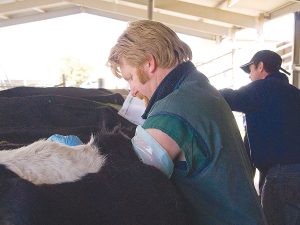M.I.A.
OPINION: The previous government spent too much during the Covid-19 pandemic, despite warnings from officials, according to a briefing released by the Treasury.
 Non-urgent veterinary care will have to be postponed until after Covid-19 alert levels reduce, say NZVA and VCNZ.
Non-urgent veterinary care will have to be postponed until after Covid-19 alert levels reduce, say NZVA and VCNZ.
While veterinarians are still providing providing care and treatment for animals during lockdown, it’s far from business as usual.
According to the Veterinary Council of New Zealand (VCNZ) and the New Zealand Veterinary Association (NZVA), Covid-19 restrictions have changed how animals, as well as people, receive healthcare.
“Under Alert Level 4 restrictions, veterinarians can only provide care that can’t be postponed,” says VCNZ’s veterinary advisor Dr Seton Butler. “As a result, non-urgent healthcare, routine vaccinations and regular checks need to be postponed until the situation changes.”
Butler says that if people follow Covid-19 rules and stay home, there should be no serious effects on their animal’s health by having routine procedures postponed by a few weeks.
“If you are concerned about delaying an appointment or unsure if your animal needs urgent veterinary care, you should always call your veterinary practice for advice.”
VCNZ and NZVA say they will review their advice as alert levels shift and will keep vets updated.
The Push-Up Challenge, an event which combines mental health and fitness, is set to launch in New Zealand in 2026.
Last month's Agritechnica event led to a wide group of manufacturers celebrating successes when the 2026 Tractor of the Year Competition winners, selected by a panel of European journalists, were announced in Hanover Germany.
According to the latest Federated Farmers banking survey, farmers are more satisfied with their bank and less under pressure, however, the sector is well short of confidence levels seen last decade.
Farmer confidence has taken a slight dip according to the final Rabobank rural confidence survey for the year.
Former Agriculture Minister and Otaki farmer Nathan Guy has been appointed New Zealand’s Special Agricultural Trade Envoy (SATE).
Alliance Group has commissioned a new heat pump system at its Mataura processing plant in Southland.